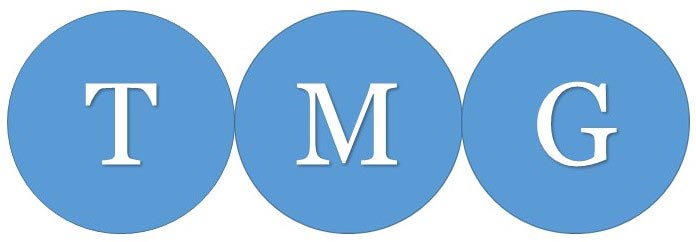Navigating The New Normal

My PhD research, which majored upon the impact of change on people at work, coupled with subsequent involvement in change management activities, has ensured more than sufficient acquaintance with resistance to change, so often manifested by the “We Always Do It That Way” philosophy, or WADITW, to use the acronym originated in 1997 by industrialist and author, Kenneth Heselton.
The New Normal Promise
Referring to the currently evolving state, so different from the pre-COVID-19 world, the “new normal” is a term which has been thrust into the blossoming coronavirus vocabulary.
Several authorities have claimed this new normal presents unrivalled organisation development opportunities. By bringing with it a shock disruption of previous work practices, the pandemic has necessitated many new ways of working which have been acknowledged as beneficial. For instance, remote working has been observed by many to have led to substantial increases in productivity accompanied by reductions in real estate costs. Environmentally-conscious employers have pointed to the reduction in carbon footprint arising from less energy use and decreased employee commuting. Remote working has also accelerated virtual, digital and automation solutions, with their benefits of efficiency, including time and cost savings.
It has been argued that the new normal has inspired the rise of agile organisations with new-found flexibility, adaptability and responsiveness ensuring their ability to thrive within the continuous turbulence of contemporary times.
This promise of greater organisational agility, efficiency and productivity bodes very well for a brighter future.
The New Normal Reality
However, our day-to-day experiences suggest such optimism must be tempered with caution in circumstances where it is far too easy to witness organisations operating contrary to the expectations created as they apparently continue to embrace the WADITW principle.
A particularly surprising revelation has recently emerged from a project undertaken by my consultancy. Benchmarking research directed towards the latest new normal trends in HR policies and practices has suggested that the grassroots reality is sometimes inconsistent with the corporate hype of several organisations widely acknowledged as being at the forefront of new normal agility.
Further, rather than seizing opportunities for improvement by introducing enhanced work practices consistent with thriving within the new normal, it seems that many organisations are intent on struggling to pursue business as usual while using the pandemic as a universal excuse for resulting poor performance. Tardy responses, missed deliveries, unfulfilled promises, substandard customer service, abandonment of complaints procedures, and so on have all become conveniently attributed to COVID-19 as these organisations insist on taking coronavirus hygiene etiquette to the extreme by washing their hands thoroughly of all responsibility.
My consultancy’s work in supporting clients’ transitions to the new normal also confirms the ongoing presence of long-acknowledged negative impacts upon the human resource. Those working from home continue to report loneliness and social isolation as well as, for many, financial worries and healthcare anxieties. Employees are frequently reporting burnout within the context of expected 24/7 availability while others are complaining of continuing work-life balance difficulties.
Against the background of wider uncertainty, insecurity, unpredictability and transience, there have even been suggestions of possible long-term effects equivalent to post-traumatic stress disorder.
Navigating the New Normal
The obvious conclusion is that many organisations appear to be struggling to chart their paths through the new normal towards making the most of available improvement opportunities especially in respect of how they serve their customers and support their workforces.
Organisational Priorities
Unquestionably, all organisations have the potential to benefit from using the new normal as a catalyst to foster the agility necessary to adapt rapidly to change while taking advantage of novel opportunities as they arise. At the same time, experience suggests they will need to ensure that what is preached is practiced throughout their ranks. There is a strong case for becoming future ready for a likely world where resilience, adaptability and customer focus will contribute to survival and success especially in anticipated times of global recession.
Human Resource Priorities
Maintaining and enhancing employee well-being is surely a crucial foundation for overcoming negative consequences and encouraging best performance. Well-being support is likely to include promotion of mindfulness and other relaxation techniques. Employee coaching is also proving to be a particularly beneficial support methodology. Recognising the immense value of communication, both formal and informal, is also critical to employee well-being as well as to employee engagement, another objective worthy of active pursuit during times of corporate turbulence.
With much work already undertaken to identify the personality characteristics, mindsets and coping behaviours most suited to the new normal, there is advantage to be gained from developing Success Profiles to guide future recruitment activities as well as to facilitate the formulation of development plans for existing workforce members. For managers, these development plans could well include training in organisational agility as well as managing remote employees in addition to hybrid teams as a return to work gradually materialises.
An Ideal Destination
Although many organisations are discovering that navigating the new normal is proving quite difficult, we should not lose sight of this unique opportunity to nurture improved ways of working and to shape things for a better future.
Above all, let us recognise the inherent potential of the current time to bring about the final demise of the debilitating WADITW ailment. Instead, there is surely enormous benefit now to be gained from championing the new normal by exercising a revised mentality of, “We Initiate New Normal Enhancements Relentlessly”: The WINNER principle perhaps?
© 2020 Terry Galvin
